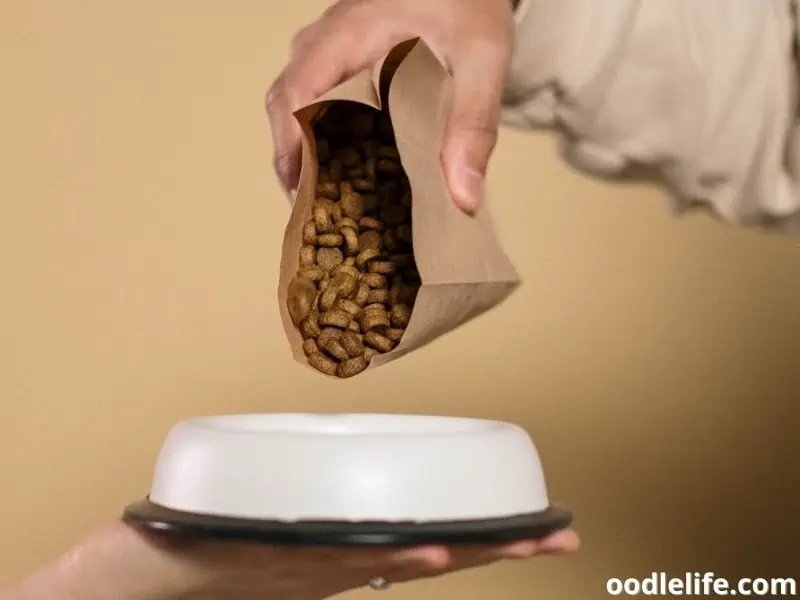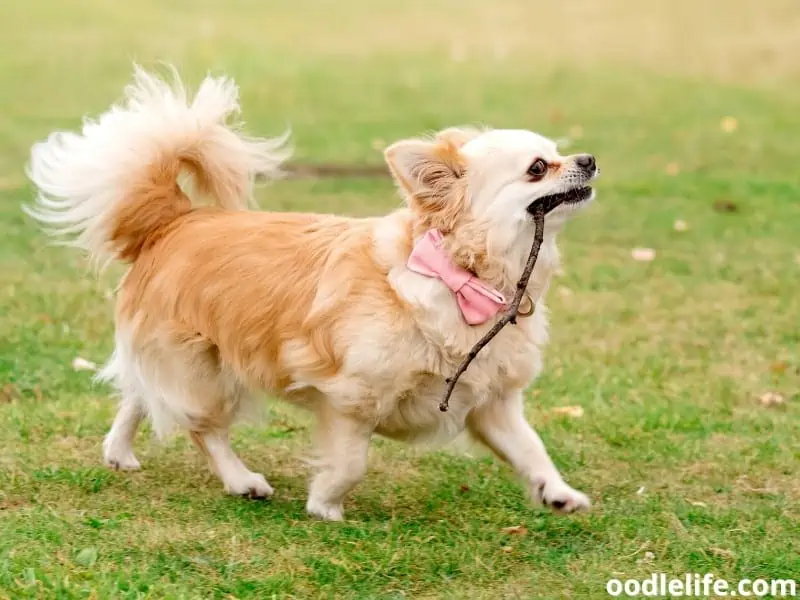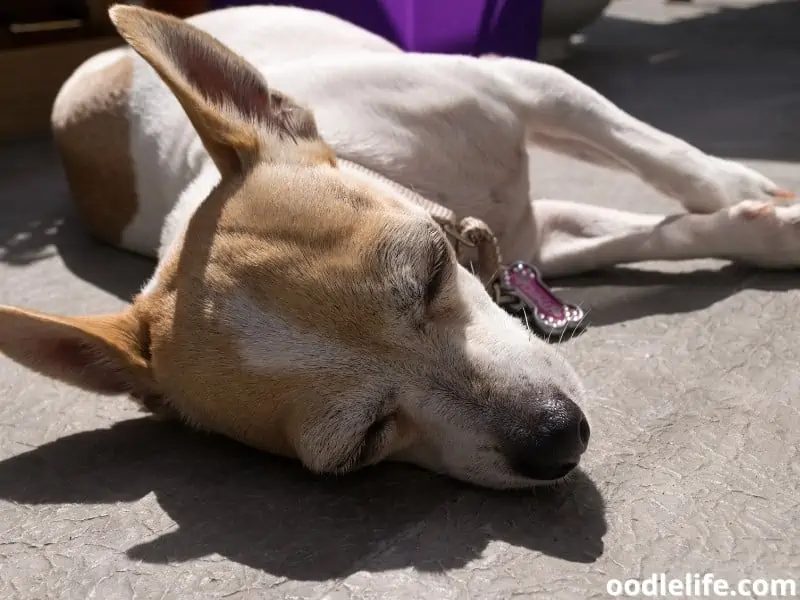What Do Chihuahuas Usually Die From?
Chihuahuas, known for their small size and big personalities, are a beloved breed among dog enthusiasts. However, like all living creatures, they are not immune to health issues and risks. This article aims to explore the common causes of mortality in Chihuahuas, providing helpful insight for pet owners who wish to provide the best care possible for their furry friends.
One of the primary causes of death in adult Chihuahuas is heart failure, often resulting from hereditary heart diseases commonly found within the breed. In addition to cardiovascular problems, lower respiratory tract infections, traumatic injuries, and brain disorders such as strokes can also contribute to fatal outcomes. Ensuring proper veterinary care and close monitoring of your Chihuahua’s health is essential in increasing the likelihood of a long, happy life.

Chihuahua puppies, on the other hand, face different challenges. Infections and trauma are two of the leading causes of mortality in young Chihuahuas. As their tiny bodies are still growing, extra care is required to avoid contagious diseases and unintentional injuries. Observing a watchful eye and providing a safe environment are crucial steps in ensuring the wellbeing of your pint-sized companion.
Everyone loves a good underdog story, and these small yet resilient creatures are sure to face life’s hurdles head-on with their characteristic feistiness.
Common Health Problems in Chihuahuas
Chihuahuas are known for their small size and big personalities but, just like any other breed, they face some common health problems. Although they are generally healthy dogs, Chihuahuas can be susceptible to certain health conditions, which we’ll explore here.

Heart Disease and Conditions
Chihuahuas may face several heart issues, such as heart disease which is known to be the leading cause of death for adult Chihuahuas (about 18.8%). One type of heart disease in this breed is pulmonic stenosis, which is a congenital defect that may require medical treatment or surgery, depending on its severity. Remember, regular check-ups with your vet can help catch and manage heart issues early.
Tracheal Collapse
Tracheal collapse is a condition where the rings of cartilage in the trachea weaken, causing a narrowing or collapse of the airway. This can lead to coughing or difficulty breathing. Chihuahuas are more prone to tracheal collapse than other breeds, mostly due to their small size.
If you suspect tracheal collapse in your Chihuahua, a visit to the vet is essential.
Dental Issues
Perhaps it’s their love of snacks, but Chihuahuas can have some serious dental problems. Tooth decay and periodontal disease are common due to their overcrowded small jaws, making them more susceptible to dental issues. Regular dental check-ups and cleanings are crucial for maintaining good oral health – after all, a healthy smile is a happy smile!
Hydrocephalus
Hydrocephalus, also known as “water on the brain,” is another health condition that Chihuahuas may experience. This condition involves an excessive build-up of cerebrospinal fluid in the brain, which puts pressure on the brain, potentially causing neurological issues. It is more common in Chihuahua puppies, but it can also develop in adults.
Timely treatment is crucial to prevent further complications.
Patellar Luxation
Lastly, Chihuahuas may face patellar luxation, which is when the kneecap slips out of its usual position. It can occur in one or both legs and may lead to lameness or difficulty walking. This condition is usually genetic, but it can also be caused by trauma or other factors.
If your Chihuahua seems to have trouble walking or shows signs of pain, make sure to get your furry friend checked out by a veterinarian.
Taking care of a Chihuahua may require some extra attention to their health needs, so keep an open line of communication with your vet and provide a loving, supportive environment. After all, keeping an eye on these common health problems will help your little canine companion stay happy and healthy for years to come. Don’t worry – they’ll repay you with endless love and affection (and maybe a few barks) in return!
Life Expectancy and Longevity Factors of Chihuahuas

Average Life Expectancy
Chihuahuas, known for their small size and spunky personality, typically enjoy a longer life expectancy compared to other breeds. On average, these tiny pups live for about 15 years, with some even reaching the ripe old age of 20! Megabyte, the oldest Chihuahua on record, lived for an astonishing 20 years and 265 days.
Imagine being that little ball of energy for two whole decades!
Factors Affecting Lifespan
There are various factors that can affect the lifespan of Chihuahuas:
- Genetics: Genetic factors play a significant role in determining a Chihuahua’s life expectancy. Diseases like hip dysplasia and diabetes may shorten their lifespan.
- Heart Diseases: Chihuahuas are prone to heart diseases, which account for about 18.8% of their deaths.
- Infections and Injuries: For adult Chihuahuas, infections or other injuries may contribute to their untimely demise. In puppies, trauma and infections are even more common causes of death.
- Living Conditions: Well cared for dogs in conducive environments are more likely to live longer than those in stressful or precarious situations.
- Diet and Exercise: Maintaining a healthy diet and ensuring your pet gets plenty of exercise can help extend their life expectancy, as obesity can lead to severe health complications.
Improving Longevity
As a Chihuahua parent, you can positively impact your pup’s longevity! Here are some tips to consider:
- Regular vet visits: Schedule frequent check-ups to ensure early detection and treatment of any health issues your Chihuahua might be facing.
- Vaccinations: Keep your Chihuahua up-to-date on all vaccinations as recommended by your vet to protect them from potentially life-threatening diseases.
- Keep them engaged: Chihuahuas are known for their intelligence and boundless energy. Engage them in mentally stimulating activities and light exercise to keep their minds and bodies in top shape.
- Proper nutrition: Feed your Chihuahua a healthy, balanced diet suitable for their age, size, and activity level.
Age may just be a number, but in dog years, it’s crucial to give our energetic little friends the best chance at a long, healthy life in both human and dog years!
Diet and Exercise for Chihuahuas
Proper Diet for Chihuahuas
Chihuahuas, like all dogs, require a well-balanced and nutritious diet to ensure their health and longevity. Feeding your Chihuahua a high-quality dog food is key, whether it be for adult dogs or for Chihuahua puppies. Dry kibble is highly recommended, as it not only provides the necessary nutrients but also helps maintain their dental health.

Make sure to avoid foods that can be harmful to Chihuahuas, such as grapes, raisins, chocolate, and excessive junk food. Remember, a Chihuahua’s stomach is just as small as their physical size!
Preventing Obesity
Despite their petite size, Chihuahuas are prone to obesity.

Here are some key tips to prevent your little friend from gaining unwanted weight:
- Feed them a restricted-calorie diet if you notice weight gain
- Ensure your Chihuahua’s meals are portioned appropriately, usually between 4-10oz per day depending on their ideal body weight
- Stick to a feeding schedule with three well-spaced meals throughout the day
Ideal Exercise Regimen
Chihuahuas may be small, but they are energetic and require daily physical activity to stay fit and healthy.

Here are a few suggestions to get your Chihuahua moving:
- Daily walks: Just like any other dog breed, Chihuahuas benefit from walking. Start with short walks, especially for puppies, and gradually increase the distance over time.
- Indoor play sessions: Chihuahuas are great indoor pets, so engaging in fun play sessions inside your home can help keep them active.
- Fetch or other interactive games: Despite their size, Chihuahuas can enjoy games like fetch or tug-of-war. Just make sure to use appropriately-sized toys that are easy for them to hold and carry.
Just remember, when exercising your Chihuahua, keep their small stature in mind. Avoid intense or rigorous activities that may be too taxing on their little frames, and always monitor them for signs of exhaustion or discomfort during playtime.
Infections, Diseases, and Vaccinations

Common Infections
Chihuahuas, like most dogs, can be susceptible to various infections. One common infection that can affect these tiny companions is parvovirus, which attacks the gastrointestinal tract and immune system. This infection can cause severe vomiting and bloody diarrhea.
Another commonly seen infection in Chihuahuas is distemper, a virus that can cause a wide range of symptoms from fever to neurological issues.
Besides these viral infections, Chihuahuas can also suffer from bacterial or fungal infections. For example, their large and prominent eyes make them more prone to eye infections and other related conditions.
Recommended Vaccinations
To protect your Chihuahua from some of these common infections, it’s essential to follow a vaccination schedule. Some of the crucial vaccines for Chihuahuas include:
- Parvovirus: Puppies should receive their first vaccination around six to eight weeks old and continue with regular booster shots as advised by your vet.
- Distemper: Similar to the parvovirus vaccine, the first distemper vaccination should take place at six to eight weeks, followed by another one after nine weeks.
- Leptospirosis: This bacterial infection can be vaccinated against as well, although it may not be included in the core vaccinations, so be sure to ask your veterinarian for recommendations.
Preventative Measures
In addition to vaccinations, there are other steps you can take to ensure your Chihuahua stays healthy:
- Regular check-ups: Visit your veterinarian for regular check-ups, including heart exams, as Chihuahuas can be prone to heart problems like patent ductus arteriosus and mitral valve disease.
- Watch for symptoms: Keeping a close eye on your pet helps you spot any signs of infections or health problems early, allowing you to seek prompt veterinary attention.
- Grooming and hygiene: Regular grooming, cleaning, and dental care can help prevent skin, eye, and ear infections.
- Safe physical activities: Since Chihuahuas are also susceptible to back and knee injuries, provide them with a safe environment to play and exercise. Avoid high jumps or rough play that could result in trauma.
Remember, no dog is immune to health issues, but taking preventative measures and staying vigilant can certainly tip the scales in favor of a long and happy life with your petite canine companion.
Behavior and Mental Health of Chihuahuas
Temperament of the Chihuahua Breed
Chihuahuas, hailing from Mexico, are known for their distinct personality, often described as a sassy ball of energy with a “saucy expression.” These pint-sized pooches possess a range of traits, including loyalty, playfulness, and determination. They often believe they’re much larger than they actually are, leading to some amusing encounters with other dogs.

Mental Stimulation and Enrichment
Mental stimulation is essential for a Chihuahua’s well-being, as they are a moderately high-energy breed. Providing them with toys, puzzles, and regular exercise can keep their minds sharp and help prevent boredom. An engaging environment where they can explore and interact with their surroundings is crucial for their happiness.

Here are a few tips for keeping your Chihuahua mentally stimulated:
- Take them on walks or runs regularly.
- Use puzzle toys, such as treat-dispensing toys.
- Teach them new tricks and commands.
- Provide them with interactive play sessions.
Remember, a bored Chihuahua may develop destructive behaviors or become lethargic.
Signs of Stress and Anxiety
Anxiety and stress can lead to health issues in Chihuahuas, such as behavior changes, vomiting, and even arrhythmia.

Signs of stress and anxiety in Chihuahuas include:
- Excessive barking or whining
- Pacing or restlessness
- Separation anxiety
- Destruction of furniture and other household items
To help reduce their anxiety, consider using techniques such as:
- Obedience training: Boost your Chihuahua’s confidence through positive reinforcement training.
- Predictable routines: Maintaining consistent routines can help lower anxiety.
- Anxiety-calming aids: Products like calming collars, herbal remedies, or even consulting with a veterinarian about medications can make a difference.
Don’t forget the power of a loving owner! Being patient and understanding with your pup will contribute significantly to their mental health and happiness.
Chihuahua Genetics and Potential Disruptions
Genetic Disorders
Chihuahuas are known for their small size and big personalities, but did you know they also have a higher genetic risk of certain health issues compared to other dog breeds? For instance, they are more prone to heart disorders, which is the leading cause of death in Chihuahuas. Unlike other breeds, Chihuahuas have a high incidence of patent ductus arteriosus (a hole in the heart) which often leads to heart failure.

Teacup Chihuahuas, a miniature version of the standard Chihuahua, face even more potential genetic disruptions. Their tiny size, although increasingly popular, comes at a cost. They are more susceptible to hypoglycemia, respiratory issues, and dental problems, just to name a few.
Inbreeding and Health Issues
Inbreeding is another factor that could amplify genetic disorders in Chihuahuas. It’s like playing a high-stakes game of genetic roulette, where the odds aren’t entirely in their favor. Inbreeding increases the risk of recessive genetic issues, which could lead to severe health problems or even premature death.

Here are some examples of what Chihuahuas could face due to inbreeding:
- Hydrocephalus (fluid in the brain)
- Collapsed trachea
- Luxating patella (dislocated kneecap)
It’s important for potential Chihuahua owners to be aware of inbreeding risks and choose a responsible breeder who carefully manages the gene pool.
Health Issues
While Chihuahuas have their share of potential genetic disruptions, it’s important to stress that they are still generally a healthy and hardy breed. With proper care and regular veterinary visits, Chihuahuas can live long and happy lives, sometimes up to 15 to 20 years. However, being responsible pet parents means keeping an eye out for potential health issues.

Some common health concerns in Chihuahuas include:
- Hip dysplasia
- Diabetes
- Cancer
- Brain disorders
So, while Chihuahuas might not have it all figured out in the genetic department, they more than make up for it with their loyal and loving personalities. As caring pet owners, we can help our furry friends by staying informed and providing them with the best possible care. And who knows?
Maybe their tiny hearts will fill our lives with enough joy to keep us going strong, too.
Conclusion
In summary, Chihuahuas have a few primary causes of death that should not go unnoticed. The leading cause amongst these tiny dogs is heart disease, which accounts for 18.5% of deaths. This risk can be heightened as they age, especially past the age of 14.
Another prevalent cause is infections such as parvovirus and distemper, which can attack their gastrointestinal tract and immune systems.
Heart disorders like patent ductus arteriosus also contribute to their mortality rate. Chihuahuas tend to have a higher genetic risk for these conditions. However, on a lighter note, these sassy and loving furballs can live up to 20 years when properly cared for.
To keep your Chihuahua healthy, take them for regular check-ups and vaccinations. Supervision can help prevent trauma and injuries that may be harmful. Also, ensure that they receive a balanced diet, exercise, and mental stimulation to ward off obesity-related issues like diabetes.
Mortality rates don’t have to be a looming statistic for your Chihuahua. With proper attention, care, and a sprinkle of love, they can lead a long, feisty, and happy life. So, go on and shower your little canine friend with affection and protection, making every moment count!
Just remember that having a Chihuahua as a pet is like owning a loveable firecracker – small, energetic, and full of surprises. Enjoy the quirks that come with this breed and remember to keep an eye on them for any potential health risks.